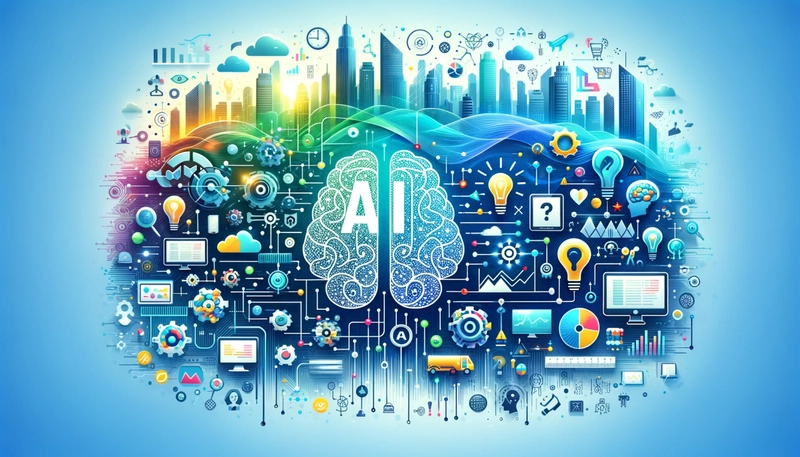The AI Revolution Is Here What It Means for Your Future

Let’s be honest, the whispers about AI taking over jobs have been around for a while. But what was once a distant hum is now a roaring conversation, and for good reason. The impact of Artificial Intelligence on the job market isn’t just a possibility; it’s an inevitable transformation that’s already reshaping how we work, learn, and earn a living.
Here in India, with our massive workforce and rapidly growing tech sector, this shift is particularly significant. So, what does this “inevitable” change really mean for us?
The Two Sides of the AI Coin: Displacement and Creation
It’s not as simple as AI taking jobs away. It’s a much more nuanced story of both job displacement and job creation.
Goodbye Repetitive Tasks: Let’s face it, many jobs involve tasks that are, well, a bit repetitive. Think data entry, basic customer service, routine accounting, or simple administrative work. These are the low-hanging fruit for AI automation. Companies, driven by efficiency and cost-cutting, are increasingly leveraging AI to handle these tasks. We’re already seeing this in action, with reports indicating layoffs in areas like entry-level programming and even within Indian startups. This automation isn’t just for blue-collar jobs; white-collar roles are also seeing significant impact.
Hello New Opportunities: But here’s the exciting part: AI isn’t just removing jobs; it’s also creating entirely new ones that didn’t even exist a few years ago! We’re talking about roles like:
AI Specialists & Machine Learning Engineers: The people who build, train, and maintain these powerful AI systems.
Data Scientists: Experts who make sense of the vast amounts of data AI generates and needs.
Prompt Engineers: Individuals skilled in crafting the right questions and instructions to get the best out of AI models.
AI Ethicists: People who ensure AI is developed and used responsibly and fairly.
And countless other roles in AI research, development, product management, and support.
Infosys co-founder N.R. Narayana Murthy, a visionary in India’s tech scene, has even drawn parallels to the introduction of computers in banking, which led to a massive multiplication of jobs. His point? Technology transforms, rather than simply replaces, the workforce.
The Key is Adaptation: Upskill, Reskill, and Embrace AI
So, what’s the takeaway from this inevitable shift? Adaptation is paramount. It’s not about fearing AI; it’s about learning to work with it.
Upskilling is Non-Negotiable: If your job involves repetitive tasks, it’s time to think about how you can elevate your skills. Learn to use AI tools, understand how they can augment your existing work, and focus on the uniquely human aspects of your role – creativity, critical thinking, problem-solving, and emotional intelligence. Many reports from India highlight the urgent need for reskilling and upskilling programs to bridge the talent gap.
Focus on Human-Centric Skills: Jobs that require empathy, complex interpersonal communication, artistic creativity, or intricate strategic planning are less likely to be fully automated by AI in the near future. Fields like healthcare (nursing, therapy), teaching, and childcare still rely heavily on human connection.
Lifelong Learning is the New Normal: The pace of technological change is only accelerating. The skills that are valuable today might evolve tomorrow. Embracing a mindset of continuous learning and being open to new technologies will be crucial for navigating this evolving job market.
Government and Industry Collaboration: For a country like India, it’s vital that the government, educational institutions, and industries work together to create programs that equip our vast youth population with AI-related skills. This includes reforming education to be more industry-aligned and offering widespread upskilling opportunities for the existing workforce.
The Future is Augmented, Not Replaced
Ultimately, the goal isn’t for AI to replace humans, but to augment our capabilities. Imagine AI handling the tedious parts of your job, freeing you up to focus on more complex, creative, and fulfilling tasks. This can lead to increased productivity, better quality of work, and even the creation of new, higher-value roles.
The AI revolution is here, and its impact on the job market is indeed inevitable. But with the right mindset, proactive upskilling, and collaborative efforts, India can not only mitigate potential challenges but also harness AI as a powerful catalyst for inclusive economic growth and a brighter future of work.
Read — What is Web3 and Why It Actually Matters
Read — The Hybrid Work Revolution 3 Strategies to Boost Productivity
